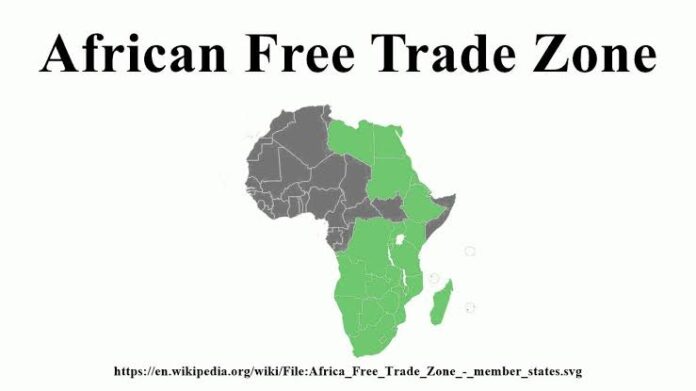An analysis
Africa will take a big step towards tackling entrenched economic problems including a dearth of intra-regional trade when a new continent-wide free trade agreement comes into force on May 30.
Proponents of the African Continental Free Trade Agreement (AfCFTA) say it has the potential to boost economic growth on a continent of 55 nations with a combined gross domestic product of more than $3tn and a young, expanding population.
But huge obstacles remain to implementation, not least that the deal is a basic framework that will lack teeth until many crucial details are worked out.
One of the agreement’s architects, Carlos Lopes, says it could take at least three years before the final agreement is implemented.
Members are now starting to iron out specific details around rules of origin, intellectual property and dispute mechanisms. “[There’s] proof of momentum, proof of ambition and proof of speed,” says Mr Lopes, the former head of the UN Economic Commission for Africa (Uneca).
“That said, it’s still a very weak agreement that needs a lot of work.” AfCFTA is meant to eliminate 90 per cent of tariffs and create a single market with free movement of goods and services.
Fifty-two countries have signed up though Nigeria, Africa’s largest economy, is holding out under pressure from its powerful manufacturers’ lobby and labour groups.
Eight active and overlapping regional trading blocs will also need to be harmonised. “What we are telling member states is that if you look at the history of the African economies, they are small and they are fragmented,” said Albert Muchanga, the African Union’s trade commissioner.
This is one of the central barriers to growth that AfCFTA seeks to eliminate. Here are some of the central challenges the agreement seeks to address: Trade between African nations trails nearly all regional blocs With its vast distances, poor road and freight connections, and cumbersome border procedures, trade between African countries lags behind most other regions in the world.
Though trade within the region has grown since the turn of the millennium, Africa beats only South America’s Mercosur when it comes to intraregional trade.
AfCFTA’s backers say it will move Africa closer to Asean’s level so that trade can flourish across the continent.
But some in the business community are sceptical of the political will among governments.
“Even if it happens, it will never be translated into reality — there will never be such a thing as a free-trade zone,” said Karim Tazi, the owner of Richbond, a Moroccan manufacturing group with investments in Ivory Coast and Kenya.
“For a trade agreement to really work you need governments to want to implement them. They will have to be willing to forgo customs revenue and the logistics will have to be put in place.”
African countries are better connected to other continents . . . The continent’s infrastructure was purpose-built for the colonial export of raw materials — and little has changed since African nations achieved independence beginning in the 1950s.
It is often easier for a country such as Nigeria to trade with the US than it is to trade with bordering Benin. Supporters hope AfCFTA will help alleviate some of the challenges to intra-African trade by knocking down tariffs that are among its biggest impediments. But the agreement will not solve an infrastructure deficit that guides most countries’ trade outward rather than inward. “If you look at a lot of the extractive industries which dominate [sub-Saharan economies], the infrastructure is all about taking all of what is produced out to the rest of the world,” said Razia Khan, chief economist for Africa and the Middle East at Standard Chartered.
Source




